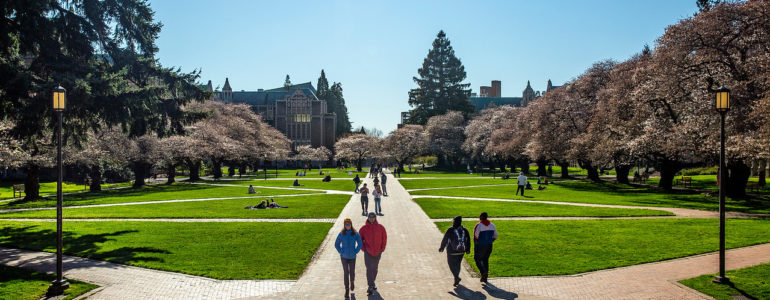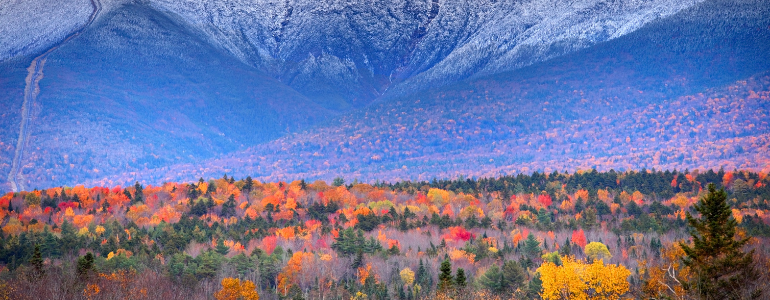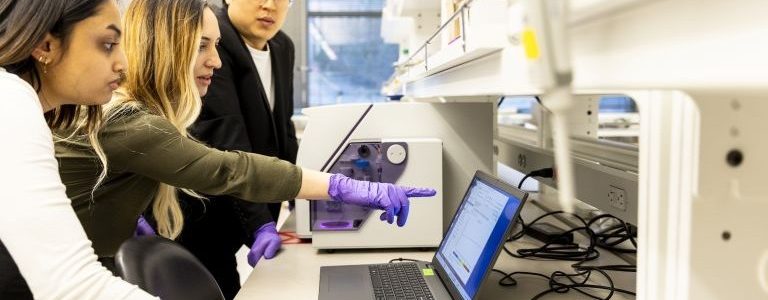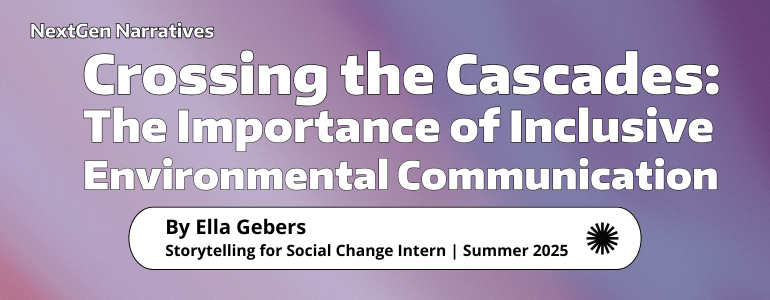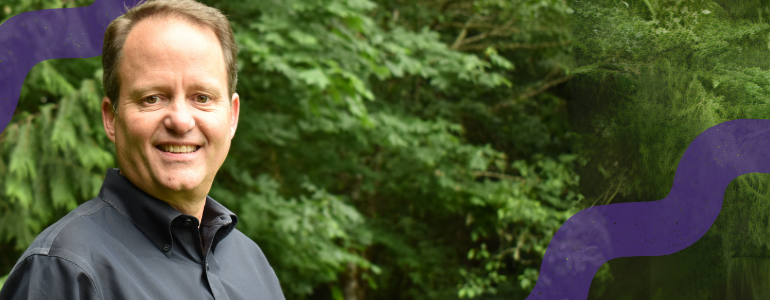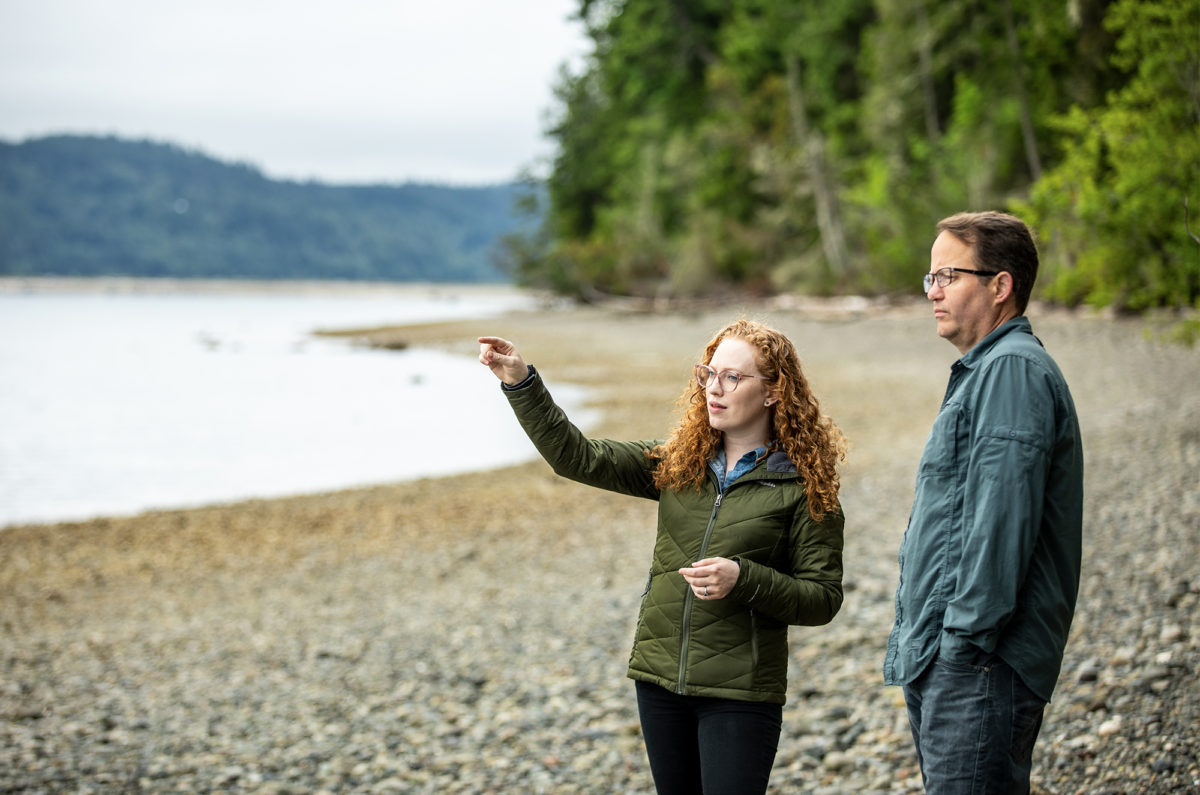EarthLab News
Q&A with our summer interns: Studying Adaptation, Building Skills for a Career in Climate
Every summer, the Climate Impacts Group hosts several interns from the EarthLab Summer Internship Program who reliably provide fresh and valuable input on our projects while receiving career development support. This year, their five interns entered the program representing a breadth of disciplines — computer science, education, business marketing & sustainability, medical anthropology and biology. They worked with the Washington State Climate Office on a flood modeling analysis project and Inclusive Excellence evaluation; with the Northwest Climate Adaptation Science Center on science communications and invasive mussel research; and with CIG scientists on mutual aid research. We’re already looking forward to hosting next year’s cohort. Before we close this chapter, we would like to share a few of the interns’ experiences – read on for a Q & A with Gavin Graham, MJ Powers, and Vickey Ye.
Read moreConnecting Resources Across Sectors to Strengthen Climate Resilience in Western Washington
To support communities, municipalities, and businesses already advancing resilience efforts across the region, EarthLab is partnering with the Center for Climate and Energy Solutions (C2ES) for their Climate Resilient Communities Accelerator program in the South-Central Puget Sound.
Read moreLearn Climate + Public Health Research Methods with the Reach Fellowship
The University of Washington Research and Engagement on Adaptation for Climate and Health (REACH) Center is hosting the inaugural Implementation and Evaluation Fellowship, designed for health practitioners and researchers. Applications are due by November 28th at 5 pm PT. REACH is part of the Center for Health and the Global Environment, an EarthLab member organization.
Read moreA Conversation with Phil Levin: EarthLab's New Interim Executive Director
Phil Levin has spent his career asking a deceptively simple question: How can science actually help the places and people who need it most? Since joining the University of Washington as a Professor of Practice in 2016, he’s worked to bridge what often feels like a large gap between research and real-world conservation challenges.
In late June, we announced that Levin will serve as EarthLab’s interim executive director prior to a comprehensive national search being conducted for a permanent successor.
Crossing the Cascades: The Importance of Inclusive Environmental Communication
By Ella Gebers
Storytelling for Social Change Intern, Summer 2025
Growing up in Wenatchee meant growing up hiking in the foothills, swimming in the Columbia River, and skiing in the mountains. My love for the outdoors blossomed into a love for the environment and a deep appreciation for the childhood it gave me.
During my first year at the University of Washington, I discovered I could use my creativity to design for people with inclusivity in mind through the Human Centered Design and Engineering major.
Tech Moves: Smartsheet adds to C-suite; Gradial and Zeno Power name senior leadership
Featured in Geekwire, "Phil Levin is stepping in as interim director of the University of Washington’s EarthLab, an institute that spans multiple colleges and departments. Levin is a conservation scientist, professor in the UW’s College of the Environment, and lead scientist for The Nature Conservancy of Washington."
Read moreEarthLab's Phil Levin To Deliver Opening Plenary at Ecological Society of America
Phil Levin, interim executive director of EarthLab, will deliver the opening plenary presentation at the 2025 Ecological Society of America (ESA) meeting on Sunday, Aug. 10. Held this year in Baltimore, MD, the annual meeting brings together thousands of scientists to share knowledge and raise awareness about critical ecological issues.
The title of Phil’s plenary, Embracing Radical Amazement: Harnessing Wonder and Awe for Transformative Environmental Policy, pulls from his time serving at the White House Office of Science and Technology Policy, where he directed the first-ever U.S.
Why Now: Reflections on Joining EarthLab
EarthLab's new Interim Executive Director, Phil Levin, reflects on the moments that led him to this role and the possibilities available to us in this moment of change.
Read moreBen Packard reflects on his leadership at EarthLab
Ben Packard, inaugural Harriet Bullitt Endowed Executive Director of EarthLab, reflects on his eight years of leadership at the University of Washington before passing the baton to new Interim Executive Director Phil Levin.
Read moreBen Packard Stepping Down as Inaugural EarthLab Executive Director
After eight years of leadership, Ben Packard will step down from his role as EarthLab's inaugural Harriet Bullitt Endowed Executive Director, effective August 1, 2025. Phil Levin, a professor of practice at the UW College of the Environment and the director of the United by Nature initiative, will serve as the interim executive director until a comprehensive national search is conducted for a permanent successor.
Read more